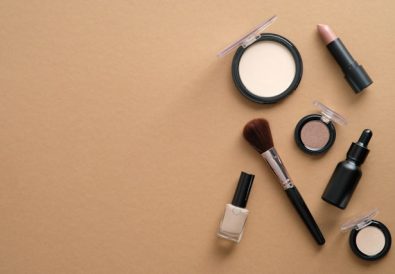
| Brits’ nutrient shortfalls often come under fire for their damaging effects on health. This time it’s our sense of sight under the spotlight. One in three Brits believe their sight is their most important sense and yet for many, taking care of their eye health comes way down their priority list. That’s according to a report and real-world research poll of over 1,000 Brits commissioned by MacuShield, the brains behind a range of specialist eye health supplements developed in collaboration with eye experts. “Our eyes are the most important of our sensory organs because they capture so much of the information we absorb,” says optometrist, Francesca Marchetti, who co-authored the new report “SEEING IS BELIEVING: Why we all need to love our eye health”. Brits can see the importance of their eyes, with a third (33%) choosing their eye health as their most important area of health, beating: Heart health (24%) Brain health (8%) Mobility (5%) Taking a closer look at the reasons why, clinical nutritionist and report co-author Suzie Sawyer tells us that, “The survey reveals that nearly three quarters (73%) place high importance on their sense of sight because of its effect on quality of life. Additionally, half of respondents (50%) value the ability to remain independent, while 47% are understandably concerned about being able to see their family.” Brits have clearly thought about the importance of being able to see but lack the nutrition knowledge to support their eyes. As public health nutritionist and report co-author Dr Emma Derbyshire points out, “The MacuShield survey shows that there is a worrying ignorance about how to look after our eyes throughout life. While 50% think there are things you can do for our eye health, they have no idea what to do and 38% have only a rough idea of what they can do. While more than one in ten (12%) think there is nothing they can do for their eye health.” Dr Emma Derbyshire goes on to highlight Brits’ dietary disaster zone when it comes to eye health, adding: “Due to the fact that relatively few of us consume our 5-a-day of fruit and vegetables – which are the main source of lutein. Lutein is one of the macular carotenoids for our eyes, which form the macular pigment. The macula is the part of the eye responsible for clear, central vision, and sadly most of us will fail to achieve the suggested intake of 10mg, along with other key eye vitamins and minerals we get from vegetables and fruits.” While a third (33%) of respondents said they ate a healthy diet and 15% said they took an eye health supplement, the MacuShield survey revealed patchy knowledge of the impact of diet and nutrition on eye health. For example, 52% thought that diet had some effect on eye health and 19% thought it had a big impact, 10% said diet had no effect, while 19% simply had no idea. As clinical nutritionist Suzie Sawyer points out: “Many nutrients have a role in eye health, in particular vitamins and minerals such as zinc, vitamin C and vitamin B2. “Macular carotenoids like lutein, meso-zeaxanthin and zeaxanthin are found in high concentrations in the eye too. Sadly, many poll respondents could not identify these key nutrients.” Only a quarter of Brits selected vitamin B2, while 15% picked out macular carotenoids and 13% said zinc could play a role in eye nutrition. What’s more, an underwhelming proportion of those polled had heard of the three macular carotenoids for our eyes: Lutein – fewer than a fifth (18%) Meso-zeaxanthin – 6% Zeaxanthin – 7% Additionally, a majority (57%) of those surveyed didn’t know which foods contain lutein. Only 24% knew that lutein is found in green, leafy vegetables. One in six (15%) thought that lutein is found in egg yolks, which is correct if the chickens are given lutein containing feed. In better news, more than eight in ten (83%) had heard of vitamin C and more than two thirds (69%) had heard of zinc. “It’s no secret that lots of Brits don’t enjoy eating green vegetables,” says Dr Emma Derbyshire, explaining that, “Many of us are time poor and often rely on ready meals or takeaways, both of which are notoriously low in fresh veg. Luckily, there’s an easy way to ramp up our eye nutrient levels to help bridge dietary gaps – taking an eye health supplement, like those in the MacuShield range.” “MacuShield Original+, a daily food supplement for eye health, contains Vitamin B2 to support eye health and contribute to the maintenance of normal vision,” adds clinical nutritionist Suzie Sawyer. Developed in collaboration with eye experts, all of the products in the MacuShield range contains LMZ3 – a nutrient blend of all three macular carotenoids: lutein (10 mg), meso-zeaxanthin (10 mg), and zeaxanthin (2mg). “With nearly four in 10 (39%) already experiencing eye problems, according to the MacuShield survey, it’s time we focused on our eye health,” says optometrist Francesca Marchetti. Dr Emma Derbyshire reminds us that: “Everyone could do a lot better with their eye health dietetics and we know from the government’s own research (National Diet and Nutrition Survey) that most of us don’t achieve our optimal nutrient intakes from food.” Dr Emma Derbyshire explains that: “Only a third (33%) of adults aged 19 to 64 are achieving their 5-A-Day of fruit and vegetables, meaning two thirds of the nation could be short of nutrients including essential vitamins and minerals for our eye health. But bridgingdietary gaps with a targeted eye supplement, such as the products in the MacuShield range,3maybe worth considering alongside a healthy diet with at least 5 fruit and vegetables a day as well as following a healthy lifestyle.” |











